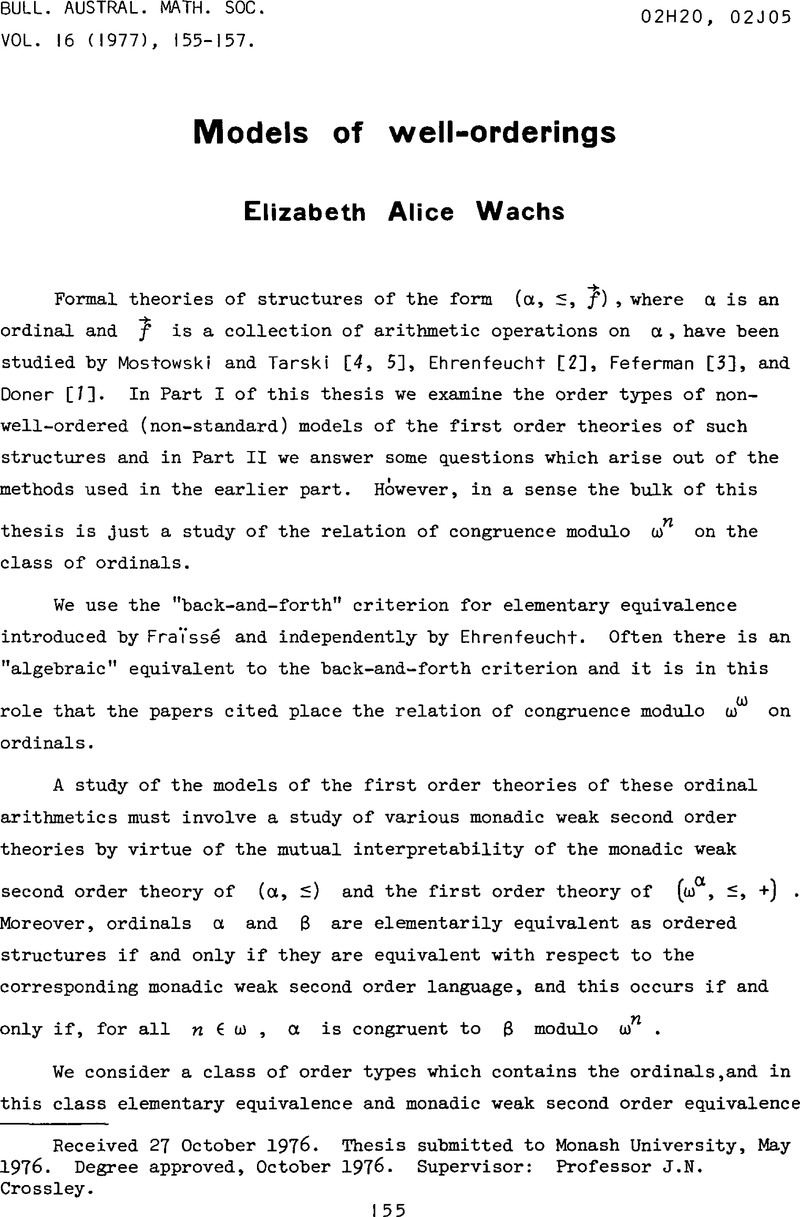[3]Feferman, Solomon, “Infinitary properties, local functors, and Systems of ordinal functions”,
Conference in Mathematical Logic - London '70,
63–
97 (Lecture Notes in Mathematics, 255.
Springer-Verlag,
Berlin, Heidelberg, New York,
1972).
Google Scholar 